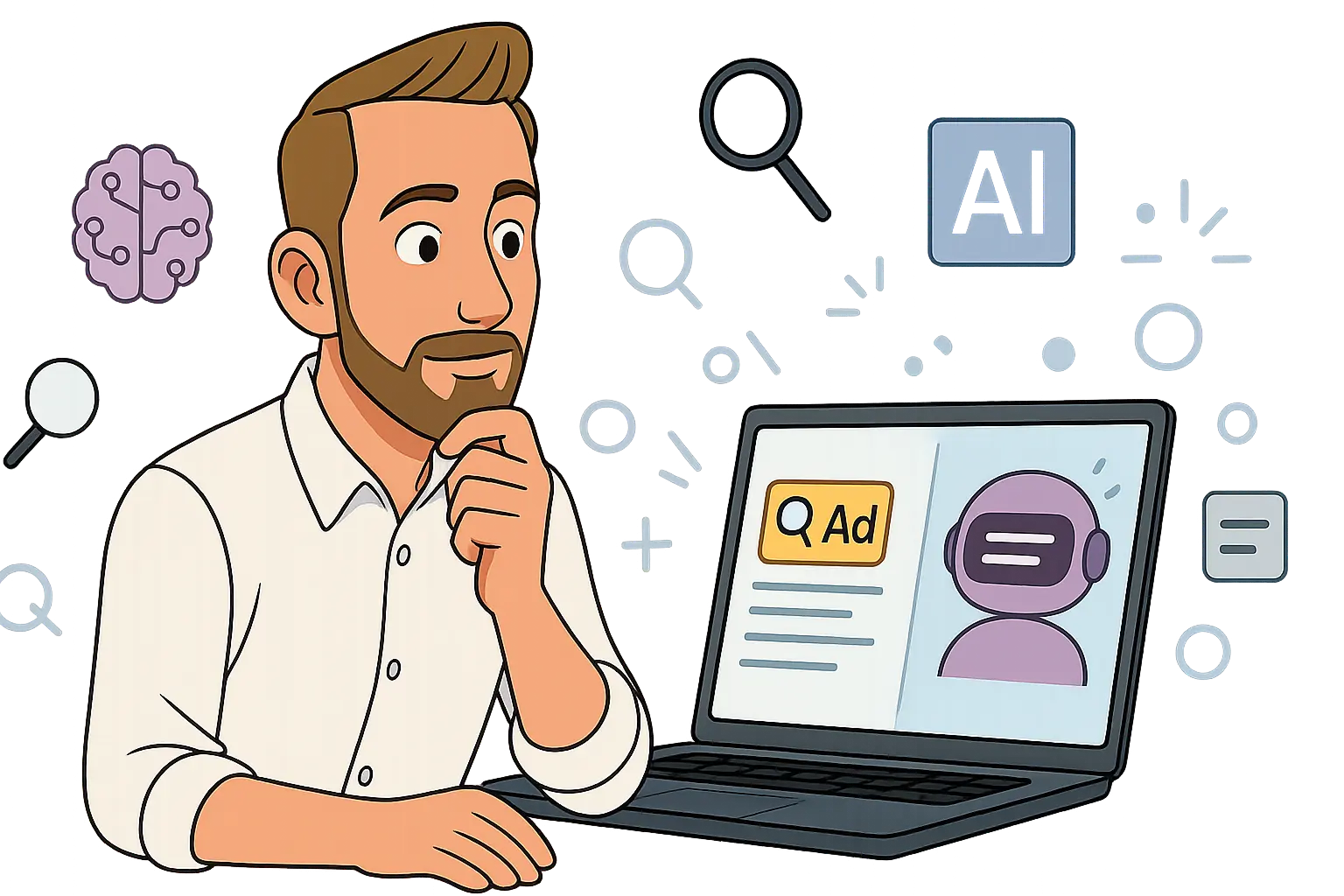A year ago, I would’ve never thought that search engines – or more precisely, the way we interact with them – would change so radically. Not just typing, hitting Enter, scrolling. No, actually talking – or at least feeling like the AI understands me.
It all started when I was building my website. If you’ve read my earlier blog posts, you’ll know: I went deep into the topic, built my own CMS, and wanted to understand how search really works today. It quickly became clear: traditional Googling alone won't be enough to stay visible.
The New Search: Personal, Contextual, Conversational
I still remember the moment I first discovered ARC Search. I was looking for something about AEO (Answer Engine Optimization) and suddenly I was served a full AI-generated response, multiple charts from various sources – and even examples of how to approach the topic. Honestly? My mind was blown.
That was the starting point for my journey into the world of AI-powered search. I explored Perplexity, consulted with ChatGPT, and even ran some queries through Duck Assist. And I have to say: it's amazing how personal yet efficient these tools have become.
SEO Isn’t Dead – It Just Speaks AI Now
For us marketing and digital folks, this is nothing short of a revolution. Instead of simply optimizing keywords, we now have to create content that’s also understood and appreciated by machines. Structured data, clear language, semantic depth. I like to call it: writing with AI goggles on.
What’s also fascinating is how much user behavior is shifting. Many people don’t want to click anymore – they want answers instantly. Preferably in a way you'd explain it to someone on your team or a trusted colleague: natural, precise, fast. Tools like Perplexity deliver just that. Google is following suit with AI Overviews – but not without consequences: classic websites are losing visibility, even those that used to rank at the top.
What’s My Takeaway From All This?
If you want to stay visible online, you have to rethink your approach. Not just technically, but mentally. It’s no longer about ranking first in Google – it’s about providing real value. For humans and machines.
As for me, I’m still right in the middle of it all. My next step? Making my website AEO-ready. That means not only looking good for visitors but also making sense to AI models. And honestly, I can’t wait to see where this journey leads.
Between SEA and AEO: How AI Changed the Way I Search

Share:
 Deutsch
Deutsch


